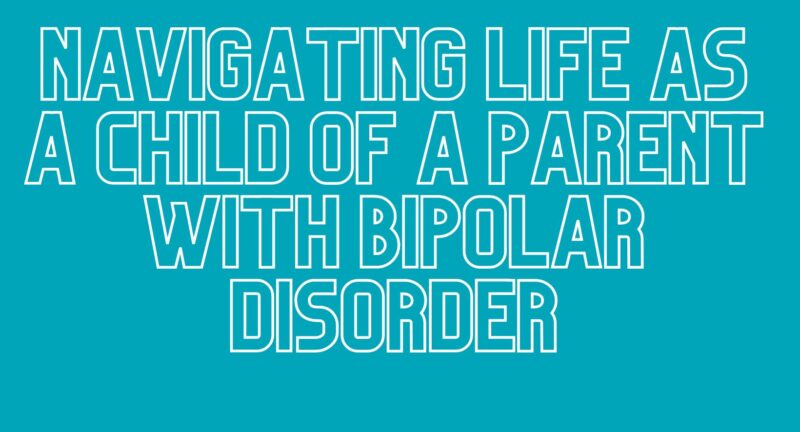
Breaking the Stigma of Bipolar Disorder
Bipolar spectrum disorder, previously known as manic depressive illness, is a mental health condition characterized by extreme mood swings that range from prolonged periods of high energy and euphoria (mania) to periods of intense sadness and hopelessness (depression). It is also characterized by abnormal sleep patterns.
Symptoms can range from mild to severe and patients can easily be misdiagnosed. Many people associate bipolar disorder with negative stereotypes, and the stigma can make it difficult for individuals living with bipolar disorder to seek help and receive the support they need.
If you need help managing bipolar disorder, we encourage you to seek the help you need. In the meantime, Dr. Ethan Short sheds light on tips for breaking the stigma of bipolar disorder.
Breaking the Stigma: Debunk the Myths
Breaking the stigma surrounding bipolar disorder is crucial for improving understanding and support for those living with this condition. By learning more about bipolar disorder and challenging common misconceptions, you can create a more supportive environment for loved ones living with this condition.
Myth #1: Bipolar Spectrum Disorder Is Rare
One of the most common misconceptions about bipolar spectrum disorder is that it is a rare condition. While severe Bipolar I disorder is more rare, less severe versions are more common. In reality, 4.4% of Americans will experience bipolar diagnosis at some point in their life. According to the World Health Organization, 40 million people were living with bipolar disorder in 2019.
Despite this, many people continue to believe that bipolar spectrum disorder is a rare or exotic condition, which can make it difficult for individuals to seek help and feel understood.
Myth #2: It’s “Just” Mood Swings
Another common misconception is that bipolar disorder is just another name for mood swings. While everyone experiences changes in mood, the mood swings associated with bipolar disorder are more extreme and can last longer than a week. These mood swings can have a significant impact on a person’s ability to function in daily life, making it difficult to work or maintain relationships.
Myth #3: Bipolar Disorder Can Make You Dangerous
Perhaps the most damaging misconception surrounding bipolar disorder is the belief that individuals with this condition are “crazy” or dangerous. In reality, individuals with bipolar disorder are no more likely to be violent than anyone else. They actually tend to be much more creative than others without the condition. However, this stereotype can make it difficult for individuals to feel accepted and supported by their communities, which can have a negative impact on their mental health.
Myth #4: You Can’t Live a Productive Life with Bipolar Disorder
Living with bipolar disorder can be challenging, but with the right support and treatment, individuals with this condition can live fulfilling and productive lives. Treatment typically involves a combination of medication, therapy, and lifestyle changes, such as optimizing daily routines, getting consistent sleep and regular exercise, and maintaining a healthy diet. Understanding how your condition affects the way you think can also be very beneficial.
Breaking the Stigma and Supporting Your Loved Ones
Breaking the stigma surrounding bipolar disorder is crucial for improving understanding and support for individuals living with this condition. By challenging common misconceptions and promoting empathy and understanding, you can create a more supportive environment for individuals living with bipolar disorder.
With increased awareness and understanding, we can help to break down barriers and ensure that everyone has access to the resources and support they need to live a happy and healthy life. You may find that reading more about bipolar disorder or joining a support group (for family members or caregivers of someone with bipolar disorder) can help you.
We’re Here for You
If you are struggling with any sort of mental health issues, seeking help from a mental health professional can make a significant difference in your life. Here at NextStep2MentalHealth, we understand that seeking help can be challenging, but we are here to support you every step of the way.
Our experienced mental health professionals provide a safe and supportive environment for you to explore your thoughts and feelings, develop coping strategies, and work towards your mental health goals. Don’t hesitate to reach out to us for help – we are here for you. Schedule your appointment here.
About Dr. Short
 Dr. Short graduated from University of South Carolina in Columbia, South Carolina, with a Bachelor of Arts in Psychology (Cum Laude). He spent 3 valuable years engaging in surgical research prior to completing medical school and psychiatric residency training at University of Louisville. He greatly enjoyed his time there gaining clinical skills and knowledge, as well as dedicating over 500 hours to educating medical students, residents, social workers, nursing staff, as well as volunteering his time to local high schools and guidance counselors to help educate the public on mental health needs in his community.
Dr. Short graduated from University of South Carolina in Columbia, South Carolina, with a Bachelor of Arts in Psychology (Cum Laude). He spent 3 valuable years engaging in surgical research prior to completing medical school and psychiatric residency training at University of Louisville. He greatly enjoyed his time there gaining clinical skills and knowledge, as well as dedicating over 500 hours to educating medical students, residents, social workers, nursing staff, as well as volunteering his time to local high schools and guidance counselors to help educate the public on mental health needs in his community.
He has his full medical license and board-certified by the American Board of Psychiatry and Neurology.
Dr. Short has extensive experience working with adults with severe mental illness including schizophrenia and bipolar disorders, addictions (opiates, methamphetamine, benzodiazepines, alcohol, tobacco, etc.), PTSD, depression and anxiety disorders, and adult ADHD. He is trained in multiple psychotherapies, but primarily practices Acceptance and Commitment Therapy as an alternative to medication, or as an adjunctive treatment for the above conditions.
You can now book an appointment with Dr. Short here. or give us a call at our Louisville, Kentucky mental health clinic at 502-339-2442.
Related Posts
Thriving Under One Roof: Navigating Life as the Child of Someone with Bipolar Disorder
Growing up with a parent who has bipolar disorder can be...
How Spring and Daylight Savings Affects Hypomania
Bipolar disorder affects 4.4% of all adults at some point throughout their life,...


